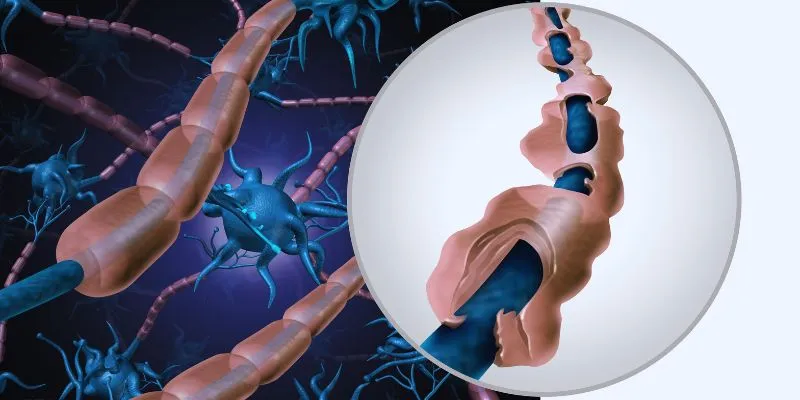Can Migraines Lead to Memory Loss
Migraines are a debilitating neurological condition affecting millions of people worldwide. While commonly associated with severe headaches, nausea, and sensitivity to light, many wonder if migraines can also cause memory loss.
The connection between migraines and memory loss is complex, with research indicating that cognitive impairments, including memory issues, can be a part of the migraine experience. This article will explore how migraines can impact memory, whether these effects are temporary or long-term, and what can be done to manage these symptoms.
Understanding the Link Between Migraine and Memory
Migraines are more than intense headaches; they involve changes in the brain that can affect various cognitive functions, including memory. For many individuals, memory problems may occur during or immediately after a migraine attack, often described as “brain fog.” This phenomenon may include difficulties with recalling words, focusing on tasks, or remembering recent events.
Research shows that migraines, particularly migraines with aura, can temporarily affect cognitive functions like memory. Aura refers to sensory disturbances that precede or accompany a migraine, including visual changes or tingling sensations. During these periods, some individuals experience symptoms similar to amnesia or confusion, which may affect their ability to form or recall memories.
Memory Impairment and Cognitive Challenges During Migraine Attacks
Migraine attacks often bring short-term memory issues and brain fog, particularly during the aura phase. These cognitive disruptions are typically temporary but can be distressing. Managing triggers like stress and sleep can help minimize their effects, while ongoing research explores potential long-term impacts on cognitive health.
Short-Term Memory Loss During Migraine Attacks
Short-term memory issues are common during migraine attacks, particularly during an aura phase. Many migraine sufferers report difficulty remembering recent events or maintaining concentration, which can be distressing but is often temporary. For example, during a migraine, individuals may forget details of conversations, struggle to focus on tasks, or find themselves unable to recall words. These issues tend to improve as the migraine subsides.

The brain fog and confusion that occur during the migraine attack are primarily linked to changes in brain activity, such as cortical spreading depression, which is believed to cause the aura and cognitive symptoms. While memory issues during an attack are often temporary, they can still be alarming for individuals who rely on their cognitive sharpness for daily activities.
Long-Term Effects: Is There a Lasting Impact?
While short-term memory issues are well-documented during migraines, the question of whether migraines lead to long-term memory loss is more complex. There is some evidence suggesting that people who experience frequent or severe migraines over a long period may be at a higher risk of cognitive decline later in life. A study showed a possible association between chronic migraines and an increased risk of conditions like Alzheimer’s disease and vascular dementia, especially in individuals diagnosed in mid-to-late life.
However, it’s important to note that not all migraine sufferers will experience long-term memory issues. Research is still ongoing, and results have been mixed. Some studies suggest that any long-term cognitive effects of migraines are more likely to impact attention and concentration rather than cause significant memory loss.
Memory and Migraine Triggers
Certain triggers, such as stress, lack of sleep, and poor diet, can significantly worsen migraines and memory problems. Stress is particularly notable, as it can increase the frequency and intensity of migraines while simultaneously impairing cognitive functions like memory. This creates a cycle in which stress exacerbates both the physical and cognitive symptoms of migraines. Managing these triggers can be key to reducing their impact.
For example, adding stress-reducing activities such as meditation or cognitive behavioral therapy (CBT) can help manage both migraines and memory issues. Meditation encourages relaxation and reduces tension, which may lessen migraine frequency, while CBT provides techniques to manage negative thought patterns that can aggravate stress. Additionally, maintaining a regular sleep schedule is essential for overall brain health and can reduce both migraines and memory lapses. By addressing these lifestyle factors, individuals can improve not only their migraine symptoms but also their cognitive function, helping to minimize memory issues.
Managing Memory Loss Related to Migraine
Managing memory loss associated with migraines often involves a combination of medical guidance and lifestyle adjustments. Although memory issues during migraines are typically temporary, individuals experiencing these symptoms should consult with their healthcare provider.

By tracking cognitive changes and migraine triggers, doctors can determine if certain medications or habits are contributing to memory problems. In some cases, preventive treatments for migraines can be adjusted, potentially reducing cognitive side effects and improving memory function.
In addition to medical treatments, lifestyle changes can significantly improve memory and cognitive health in migraine sufferers. Regular physical exercise, proper hydration, and consistent sleep patterns are crucial for managing migraine frequency and reducing the cognitive symptoms that accompany them. Including cognitive exercises like memory games or puzzles can also help strengthen mental clarity and brain function.
These activities, when combined with effective migraine management, may help alleviate memory loss and improve overall cognitive health. Taking a holistic approach—addressing both medical and lifestyle factors—can help reduce the cognitive burden of migraines.
Conclusion: Migraines and Memory Loss
Migraines can lead to temporary memory loss and cognitive difficulties, especially during the attack phase. While these issues typically improve once the migraine subsides, individuals with frequent or chronic migraines may experience more persistent cognitive symptoms. Research on the long-term effects of migraines on memory is ongoing. Still, current findings suggest that while there may be a link between migraines and cognitive decline, not every migraine sufferer will experience lasting memory loss.
The best approach to managing migraine-related memory loss is to work closely with healthcare providers to adjust treatment plans, track symptoms, and make lifestyle changes that support cognitive health. By understanding the relationship between migraines and memory, individuals can take steps to minimize the impact on their daily lives.










